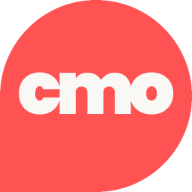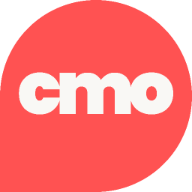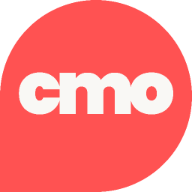The role of the Chief Marketing Officer (CMO) is both critical and complex. Unlike their counterparts in established companies, startup CMOs must navigate an environment defined by constant change, limited resources, and high expectations for rapid growth.
These marketing leaders must not only execute strategies that drive immediate customer acquisition but also lay the foundation for long-term brand success – all while juggling a wide range of responsibilities.
From wearing multiple hats to scaling marketing efforts with tight budgets, startup CMOs are instrumental in guiding companies from early-stage development to market leadership.
This guide explores:
- Traits and skills of a startup CMO
- Challenges startup CMOs face
- Leadership and team dynamics as a startup CMO
- Common strategies and approaches startup CMOs should use
Traits and skills of a startup CMO
Agility and adaptability
Startup CMOs operate in highly dynamic environments, where market trends, consumer behaviors, and company priorities can shift overnight. These leaders must quickly assess changes and realign strategies to ensure the company stays competitive.
Agility is key in adjusting to a sudden drop in customer acquisition costs, responding to unexpected market shifts, or re-evaluating a product's messaging. Adaptability also means being open to feedback and experimentation.
After all, what worked yesterday might not work tomorrow.
Entrepreneurial mindset
Unlike traditional marketing roles, where resources are abundant and teams are larger, startup CMOs often work with constrained budgets and minimal manpower. This requires an innovative, risk-taking, and creative mindset.
These CMOs must be resourceful, finding cost-effective ways to execute impactful marketing campaigns.
They are often problem-solvers who thrive in ambiguity, making the most out of every dollar and leveraging unconventional marketing techniques to create a high return on investment (ROI) while competing with much larger, established companies.
Data-driven
In a startup environment, every dollar counts, and decisions must be backed by data to minimize risk and maximize efficiency. A successful startup CMO leverages data analytics to track performance, optimize campaigns, and refine customer acquisition strategies.
Setting measurable KPIs (Key Performance Indicators) can ensure that every marketing initiative is aligned with broader business goals. Using data to make informed decisions about customer segmentation, channel effectiveness, and budget allocation, ensures that the company gets the best possible return on its marketing investment.
Growth focused
Startups, by nature, demand rapid growth, and CMOs in these environments must be laser-focused on scaling the business quickly. This often means employing "growth hacking" strategies – creative, low-cost solutions for acquiring and retaining customers.
Startup CMOs are typically obsessed with customer acquisition, retention, and lifetime value (LTV) metrics.
They prioritize marketing efforts that lead directly to customer growth and work tirelessly to optimize funnels, enhance user experiences, and increase conversion rates while maintaining a balance between short-term wins and long-term scalability.
Versatility
Unlike larger corporations, where marketing roles are often specialized (e.g., content, social media, performance marketing), startup CMOs must be versatile. They wear many hats, often managing everything from brand positioning to SEO, from product marketing to partnerships, all while building out foundational processes.
This breadth of skill is essential because startups lack the luxury of a large, specialized marketing team. The startup CMO must have a comprehensive understanding of multiple disciplines to juggle day-to-day execution with high-level strategic decisions.
Challenges startup CMOs face
Limited resources
Startup CMOs often operate within tight financial constraints, meaning they must deliver results without the large marketing budgets that their competitors might enjoy. This requires them to prioritize efforts that provide the highest ROI and often means making tough decisions about where to invest limited funds.
Additionally, with smaller teams, they frequently rely on a handful of generalists rather than a large group of specialized marketers, requiring more hands-on involvement in tactical execution. Despite these challenges, they are expected to compete against well-funded competitors and often in crowded markets.
Pressure for quick results
There is constant pressure from founders, investors, and boards to produce quick wins and show immediate traction. As startups are typically underfunded and racing against a runway, there is little time for prolonged experimentation.
CMOs need to demonstrate fast growth in customer acquisition and prove that marketing efforts are contributing directly to revenue.
This pressure often leads to a reliance on performance marketing, as these channels tend to show quick, measurable results. However, this short-term focus must be balanced with the need to build sustainable, long-term marketing strategies.
Our very own CMO, Bryony Pearce, said “Most startups go wrong by trying to sell too soon. Don't get me wrong, the aim of the game is to make money. I get that. But you make money once you get people to know, like, and trust you. And you get people to know, like, and trust you by giving away genuinely useful content.
“Rewind five years when Product Marketing Alliance was born. Before we had a membership, before we sold certifications, my sole focus was creating blog posts, data-back reports, newsletters, and podcasts. Create. Distribute. Repurpose. Repeat.
“Six months later we had a loyal base of PMMs who knew, liked, and trusted us. You can guess what happened when we *then* went on to launch our memberships and certifications…”
Brand building while scaling
Balancing brand development with the immediate need for rapid growth is one of the biggest challenges startup CMOs face. While performance marketing drives quick wins, long-term success hinges on building a strong, recognizable brand.
Startups often lack the luxury of time, which makes it difficult to invest in branding, yet it is crucial for differentiating the company in the long run. Startup CMOs must find a way to execute on both fronts – driving fast growth while establishing a foundation for a lasting brand identity that resonates with target audiences.

Navigating uncertainty
The startup landscape is inherently volatile, with market fit, product evolution, and funding rounds constantly shifting.
Startup CMOs often face the challenge of leading marketing efforts in environments where the product is still evolving and market fit has not been fully validated.
As priorities shift and pivot, CMOs must remain agile and recalibrate strategies frequently to align with new directions. They must also manage the unpredictability that comes with rapid scaling, as processes, resources, and strategies need continuous adaptation to match the company’s growth stage.
Leadership and team dynamics
Cross-functional collaboration
In a startup, the marketing function does not exist in a silo. CMOs need to collaborate closely with various departments, including product, sales, and customer success, as well as the CEO or founders.
This cross-functional teamwork ensures that marketing strategies are aligned with the broader business goals. A successful startup CMO serves as a bridge between departments, using communication skills to foster collaboration and ensure that the marketing message is consistent across the product’s user experience, the sales pitch, and the brand's voice.
Talent development
Given the lean nature of startup teams, CMOs often work with a small group of generalists who need guidance and training to become versatile marketers.
Leadership in this context involves more than just setting the strategy – it requires nurturing talent, building a cohesive team culture, and developing individuals to take on a broader range of responsibilities.
Startup CMOs focus on hiring people with a strong learning mentality, as they often need to wear multiple hats. Mentorship and creating a growth-oriented culture are super important, as they need to keep employees motivated despite the inevitable challenges and workload.
Common strategies and approaches
Performance marketing
Performance marketing is the backbone of many startup marketing strategies because it delivers measurable, quick results. Startup CMOs typically focus on channels like PPC (pay-per-click), SEO, and social media advertising to drive direct responses and optimize customer acquisition.
These channels provide immediate feedback, allowing CMOs to adjust campaigns in real time based on performance metrics like cost-per-click (CPC), customer acquisition cost, and return on ad spend (ROAS). While efficient for scaling, performance marketing requires constant tweaking and optimization to remain cost-effective.
Content marketing and thought leadership
Building a strong content marketing strategy is often a key component of a startup CMO’s playbook. By creating valuable, informative content, startups can position themselves as thought leaders in their industry, which helps build trust and authority with their target audience.
“From my experience at The Alliance (which houses 15 professional communities), the communities who’ve thrived the most (and quickest) are the ones where we invested the hardest and longest with content first.”
Bryony Pearce, CMO at The Alliance
Content marketing also has the added benefit of driving organic growth through SEO, reducing dependency on paid acquisition channels over time. Whether through blogs, white papers, or webinars, content marketing helps educate potential customers and create a community around the brand.

Customer-centric approach
A successful startup marketing strategy often revolves around the customer. CMOs must prioritize customer feedback to refine messaging, product offerings, and marketing tactics.
By continuously gathering insights from customer data and direct feedback, CMOs ensure that the company’s product-market fit remains strong and that marketing strategies resonate with the target audience.
Additionally, customer-centricity often extends to customer retention strategies, where the focus shifts from acquiring new customers to deepening relationships with existing ones, increasing customer lifetime value (LTV).

Vision for the future
As startups transition from early-stage growth to more mature companies, startup CMOs must prepare for scaling challenges.
This involves thinking beyond immediate growth hacks and short-term marketing tactics, shifting the focus towards building a sustainable, long-term marketing engine.
One key area of focus is investing in brand equity, ensuring that as the company scales, it maintains a strong, recognizable brand presence.
CMOs must also develop strategies to handle the increased complexity that comes with scaling – whether it's evolving the marketing tech stack, refining customer segmentation, or expanding into new markets.



 Follow us on LinkedIn
Follow us on LinkedIn






